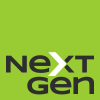Tom Hibbard – 20 April 2021
Given NextGen is close to launching a full report on recruitment, I wanted to briefly reflect on our own processes from the tail-end of 2020 when we were recruiting for board and sub-committee positions and how we prioritised cognitive diversity in this process. Before we dive in, let’s quickly cover the elephant in the room – salaries. NextGen roles are all voluntary and therefore salaries, which can be a hurdle in recruitment, weren’t a consideration for us. However, salaries shouldn’t detract from how you then go about finding the right people within those constraints, so we’ll leave that one at the door.
Before we even spoke to any potential candidates, we needed to establish what skills we wanted them to have, how we could grab their attention through our job ad and the process we wanted them to go through.
Personality is important for NextGen, so we focused on the following traits;
-
Passion – we believe the work we’re doing is important and we want those who come to work with us to champion it as well. Those that have a passion for the work they do are much more likely to enjoy it and as a result, succeed in making a positive impact.
-
Go-getters – everything we do within NextGen is unpaid and requires time and effort outside of your day job – we need proactive people who get things done.
-
Creatives – as part of the research and insight committee, we are authoring, partnering & summarising content and need people to bring ideas to the table and engage in the discussion.
-
Dissenters – used in a positive connotation; those who are willing to challenge the status quo. We’re trying to affect change in an industry that is often seen as slow moving and lacking innovation, so we want healthy debate.
-
Relationship Builders – whilst wanting to challenge existing beliefs and systems, we want to work alongside those in executive positions and to help organisations progress.
We thought a lot about how to attract people from a wide variety of backgrounds, including those that might otherwise be overlooked and with the traits we felt were important
We started with language, keeping the ad light and straightforward and avoiding laundry lists of skills and years of experience, which can scare away otherwise qualified talent. At the simplest level, research has shown that equally qualified women are less likely to apply for a job that they don’t meet all the criteria for, compared with men.
Far more important than skills lists / years’ experience, is outlining what the role entails, so someone can compare their experience in previous roles and how that would make them a success in any new role too. We also ensured that multiple people read what was going out, including the comms sub-committee to protect against personal and subconscious biases.
Finally and arguably most importantly, we worked hard to design a process that was fair and successfully highlighted the best people
The process was as follows:
-
Answer three simple questions in an email in advance, focusing on their story and their motivations (reviewed blind)
-
A group discussion interview with all candidates to share and discuss ideas regarding the questions (which were distributed in advance)
We were looking for:
-
People who had something to say
-
People who had different perspectives from those on the committee
-
People from a range of roles in order to increase team-level diversity
Whilst looking for the above key criteria, we were keen to pay attention to two common traps that are easy to fall into. Firstly, we made sure we steered clear of decisions made on first impressions, gut instincts and rules of thumb, which are proven to be very weak indicators of future performance. Secondly, whilst culture fit is one the most important things to look for, it can be easily confused with finding like-minded people. Given we wanted new people to challenge our thinking and improve outcomes through cognitive diversity, like-minded people would not have had the same impact as fresh thinkers.
Our focus during the group interview was ultimately all about difference. Whilst we tried to ensure there wasn’t bias in our comms and the process was fair, it was the search for difference which made the process feel impactful. We wanted people to say something we didn’t agree with and work it out together. One of NextGen’s goals is to increase cognitive diversity in the pension industry and in order to do that we need cognitive diversity on the committees.
Having reflected on the process, we’re confident that the focus on inclusivity and cognitive diversity has had both a positive impact on NextGen as a group, but can also provide an example to the industry on how to continue to progressively and successfully attract top talent.



Leave A Comment